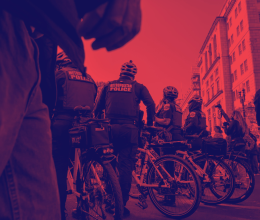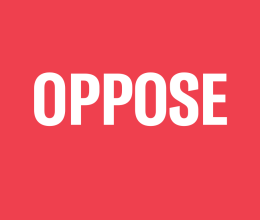FOR IMMEDIATE RELEASE
Contact: [email protected]
WASHINGTON – In response to a Freedom of Information Act request filed by the ACLU of the District of Columbia seeking data that D.C. law requires police to collect about the race or ethnicity of individuals subjected to traffic stops, the D.C. Metropolitan Police Department has replied that the information can be found only by viewing 31,000 body-worn camera videos.
In April 2019, the ACLU-DC filed the Freedom of Information Act request for six months’ worth of race data for traffic stops in conjunction with its lawsuit against Mayor Muriel Bowser and MPD for their failure to comply with the stop-and-frisk data collection provision of the 2016 Neighborhood Engagement Achieves Results Act. MPD’s FOIA officer replied that documents responsive to the request would be in the form of 31,521 body-worn camera videos, and “to process this many videos will take quite some time and effort to complete.”
“Even if we had the capacity to review 31,000 body-worn camera videos, and even if every traffic stop is just five minutes, that’s more than 2,600 hours of footage to get information that could have easily been indicated with a checkbox on a form,” said Scott Michelman, Legal Co-Director of the ACLU of the District of Columbia and lead counsel for the plaintiffs. “And based on a prior bill we received from MPD for body-worn camera footage production at $23 per minute of video, the bill for 31,521 five-minute videos would exceed $3.6 million: a preposterous amount to get access to data that should be free to the public. This all underscores how far Mayor Bowser and MPD will go to flout the will of the Council. Having watched them shirk their responsibilities under D.C. law for more than three years now, we can expect only more of the same until the court orders compliance.”
The NEAR Act lawsuit, Black Lives Matter D.C. v. Bowser, was filed in D.C. Superior Court in May 2018 and sought a court order requiring MPD to collect all the data specified in the NEAR Act. The court heard arguments in the case in four hearings during the fall of 2018; a decision remains pending. In a court filing today, the plaintiffs informed the court of MPD’s response to the race-data FOIA and reiterated their request for a decision.
“Requiring members of the public to watch more than 31,000 videos to extract data that the Council intended to be collected and made easily available to the community is absurd, and makes a mockery of the law that requires this data,” said April Goggans, a Core Organizer with Black Lives Matter DC, the lead plaintiff in the lawsuit. “MPD’s utter contempt for the NEAR Act is unmistakable when, three years after data collection was legally mandated, their idea of compliance is to tell us to fire up our computers and find this information ourselves.”
Today’s filing coincides with the anniversary of a confrontation between police and community members in Deanwood, which triggered community outrage and intense scrutiny of the incident by the D.C. Council with a two-day hearing.
“One year ago today, members of MPD’s Gun Recovery Unit physically and verbally harassed members of the Deanwood community on Sheriff Road just for hanging out in their own neighborhood,” said Eugene Puryear of Stop Police Terror Project DC, co-plaintiff in the lawsuit. “That incident is directly related to our lawsuit: MPD will continue to overpolice black people in D.C. so long as they aren’t required to document their practices and be held accountable for them. As Mayor Bowser’s Summer Crime Prevention Initiative is now in full swing, we can expect more of the same misconduct and harassment in disenfranchised communities already suffering from an uptick in violence unless the court acts immediately to order the police to comply with the law.”
More about the lawsuit, Black Lives Matter D.C. v. Bowser, and the filing today in D.C. Superior Court, can be found here: https://www.acludc.org/en/cases/black-lives-matter-dc-v-bowser


